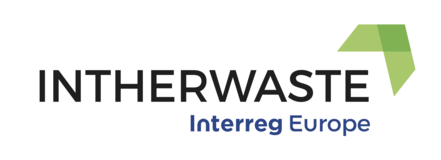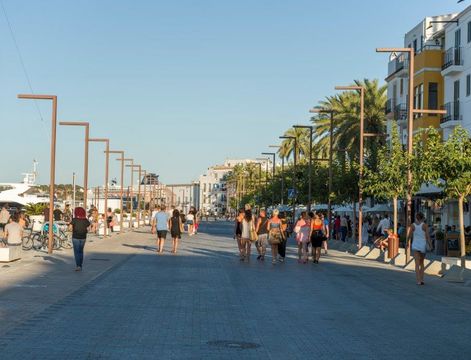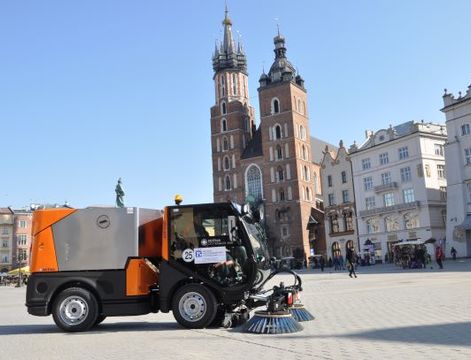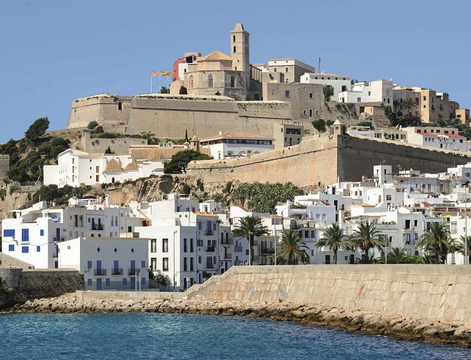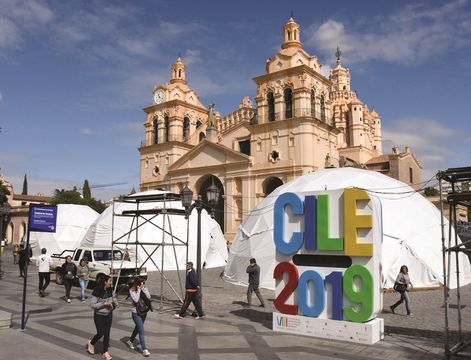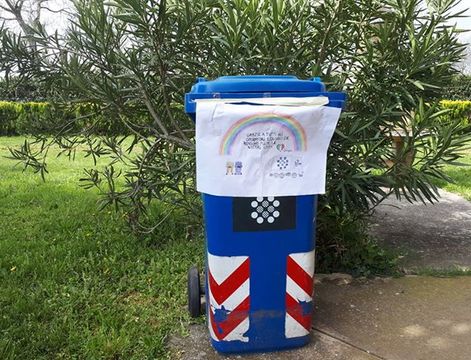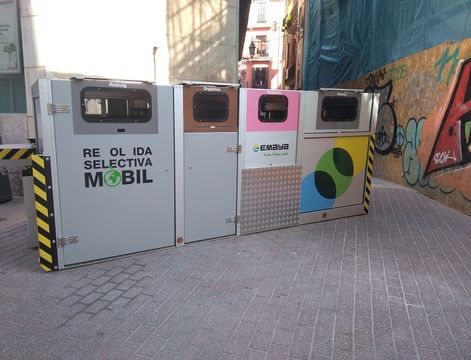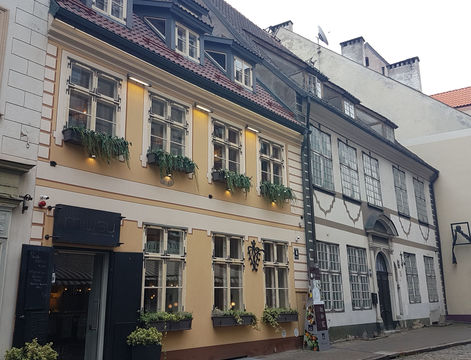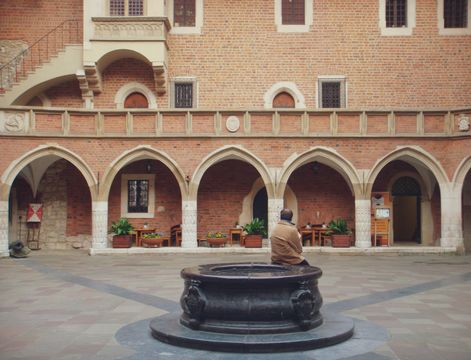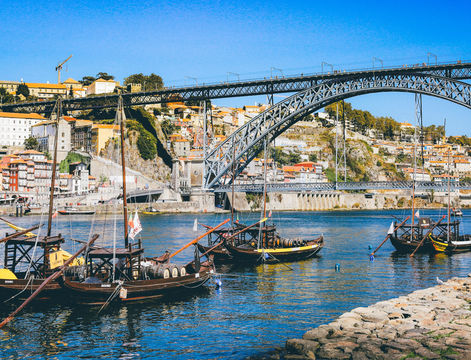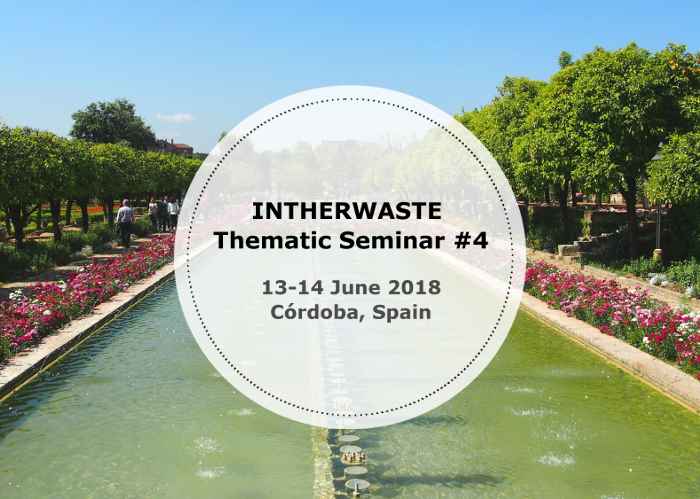These four thematic seminars provided a unique mutual learning opportunity for the five pilot cities of the project ahead of the bilateral meetings and implementation phase Guest speakers from other cities contributed to each seminar, providing a diverse range of examples of good practices.
The final edition, held in Córdoba on 13-14 August, focused on the topic of waste prevention, the highest level of the waste hierarchy. The seminar looked at different solutions to ensure and reinforce waste prevention, as a key approach for more sustainable waste management.
The good practices were distributed among five thematic groups: economic instruments, reuse activities, composting, campaigns, and cooperation with a multi-stakeholder approach to combating food waste.
The presentation on economic instruments provided comprehensive background on the economics of waste prevention. Córdoba, opened the seminar with a case on Pay-As-You-Throw system (PAYT) and its achievements. Jesús Diz, Director of operations at Sadeco, highlighted the fact that there was always a close correlation between certain indicators, in particular GDP and waste production which usually followed similar curves. However, with the introduction of PAYT, this trend changed and PAYT has become an important economic instrument which allows savings and less waste. Guest speaker Ignasi Puig, from the Catalan consultancy-foundation ENT, expanded this principle and explained the mathematics behind PAYT, with his example of a fee-rebate scheme in the metropolitan area of Barcelona. Michał Gelata, of the city of Kraków, shared their new approach to fighting plastic bag consumption by way of a recycling fee paid by the customers.
Reuse activities provide an essential contribution to waste prevention by applying circular economy principles. Eliis Kuus from Tallinn presented the CupCycle initiative, which provides reusable cups, produced in Estonia, to events for a service fee (paid by the organiser) and deposit (paid by the users). Speaking on behalf of Métropole Nice – Côte d’Azur, Gilles Passeron Seitre presented their new reuse centre. It serves as a reception facility for bulky waste which gets a second life through repair activities and gets placed on a second hand market. The facility has a strong social cohesion aspect as it has committed to employing workers under social integration contracts and providing them with training.
Porto and Córdoba presented their practices on composting, which showed that involving inhabitants is key to reducing bio-waste. Speaking on behalf of Lipor (Porto’s waste management company), Carolina Lucas presented three methods of implementing composting in urban areas – home composting, vermicomposting and community composting, all of which contribute substantially to bio-waste reduction. In order to facilitate these activities, Lipor provides trained staff to visit, monitor and give useful information.
Agata Zambrowicz, shared with the participants a successful campaign by the city of Warsaw to raise awareness among local residents and visitors of the need to protect the Vistula river’s banks, while Sandra Romero and Montse Garcia, representing the Municipality of Ibiza, shared their two campaigns targeting food waste.
Involving local stakeholders and ensuring a multi-stakeholder approach is important for Tallinn, Porto, and the seminar’s guests from Bruges. While Tallinn works closely with the National Food Bank network in Estonia, supporting their efforts in food collection, Porto provides material and visibility to restaurants’ efforts to prevent food waste through doggy bags and similar measures. Bruges, with its well-established food waste policy and strategy, has brought hospitals and health care institutions on board to tackle the issue of food waste through a number of steps – such as defining the portions, optimising their nutritious and quantitative values, and continuously assessing potential improvements.
Erneszt Kovacs, on behalf of the project’s advisory partner ACR+, wrapped up by presenting the Charter of Commitments for Sustainable Resource Management and Circular Economy in touristic areas, an initiative coming from two European projects – URBAN-WASTE and BLUEISLANDS. This Charter brings together European cities, regions, and islands which are famous tourist destinations and displays their interest and commitment in making tourism activities more sustainable with a focus on waste management. Several INTHERWASTE partners have expressed interest in perhaps signing the Charter.
With the thematic seminars now completed, the participating cities will soon draft their action plans to serve as guidance for implementing the chosen practices in their local settings. The next project meeting in Tallinn in November 2018 will serve as a stage for presenting these action plans to the partnership.
Find here all the presentations.
